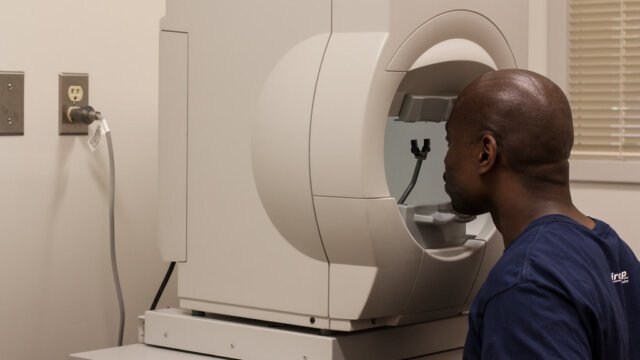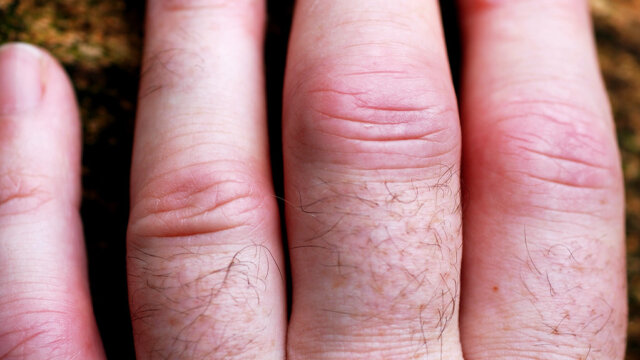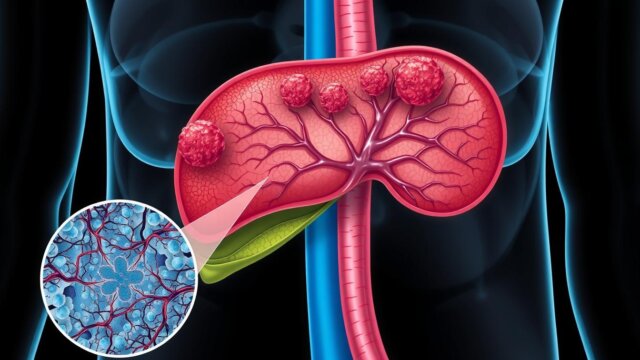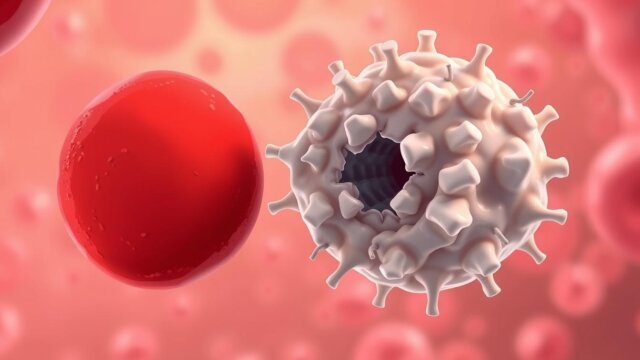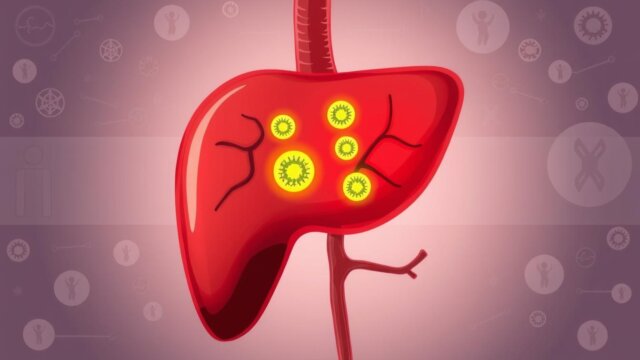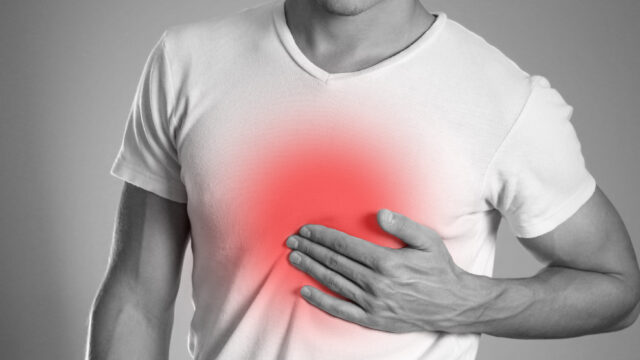FTC disclaimer: This post may contains affiliate links and we will be compensated if you click on a link and make a purchase.
About 20 to 30 percent of adults visit doctors each year for dizziness. This condition can make daily life tough, causing feelings of faintness and a spinning sensation. It can also raise your risk of falling, especially when driving or using heavy machinery.
If you often feel lightheaded or have trouble with balance, it’s key to know about dizziness. We’ll cover the different types, what causes them, and how to get help. This guide aims to help you manage dizziness and improve your balance.
Key Takeaways
- Dizziness is a common symptom that can significantly affect your daily life.
- Dizziness can be caused by a variety of factors, including inner ear disturbances, motion sickness, and medication side effects.
- Benign paroxysmal positional vertigo (BPPV) is the most common cause of vertigo.
- Certain medical conditions, such as Meniere’s disease and migraines, can also lead to episodes of dizziness.
- Dizziness can increase the risk of falls and injuries, particularly when driving or operating machinery.
Understanding Dizziness
Definition and Types of Dizziness
Dizziness means feeling faint, woozy, weak, or unsteady. It includes feeling like you or things around you are spinning. This is called vertigo. Disequilibrium is when you lose your balance.
Inner ear problems, circulation issues, and some neurological conditions can cause dizziness. Meniere’s disease might cause tinnitus, hearing loss, or ear pressure. Severe vertigo can make you feel sick and unable to keep food down.
Double vision or slurred speech could mean a stroke. Standing up too fast can cause a drop in blood pressure, making you feel lightheaded.
Knowing the types of dizziness and why they happen is key to getting help. Finding the cause is important for treatment. If dizziness comes from medicine, changing the dose might help.
The Dix-Hallpike maneuver can help with benign positional vertigo. Therapy and psychological help can also aid in getting your balance back. If dizziness is severe, a doctor may need to do more tests and might prescribe medicine or compression stockings.
Be careful when driving or using heavy machinery if you feel dizzy.
“Dizziness is a common symptom that is not typically a sign of a serious condition but should be investigated by a doctor.”
Symptoms of Dizziness
Dizziness can show up in many ways. You might feel like you’re spinning or moving, even when you’re not. Or you might feel like you’re floating or your head is heavy. These feelings can get worse when you move and might make you feel sick or need to sit down.
These dizzy spells can last from seconds to days and might come back. Most adults get dizzy sometimes, and it’s usually not a big deal. But, you should see a doctor if it happens suddenly, is very bad, or doesn’t stop.
Many things can make you dizzy, like low blood pressure or stress. Other causes include migraines, low blood sugar, or dehydration. Even some medicines or drinking too much alcohol can make you feel dizzy.
If you’re dizzy and have chest pain or feel really sick, you should get help right away. These signs could mean something serious is going on that needs quick medical help.
To deal with dizziness, try resting and move slowly. Avoid sudden head movements and drink plenty of water. Sometimes, doctors might give you medicine or suggest exercises to help. Always listen to what your doctor says to manage your dizziness better.
Symptom | Description |
|---|---|
Vertigo | A false sense of spinning or motion |
Lightheadedness | Feeling faint or on the verge of fainting |
Unsteadiness | Loss of balance or feeling off-balance |
Nausea | Feeling sick to the stomach |
Fainting | Temporary loss of consciousness |
“Dizziness is a common experience in adults and is rarely an indication of a severe underlying condition.”
If you keep feeling dizzy or it’s really bad, you should see a doctor. They can figure out why and help you feel better. This will help you live a healthier life.
Causes of Dizziness
Inner Ear and Balance Disorders
Dizziness can come from many inner ear and balance issues. Benign paroxysmal positional vertigo (BPPV) causes short, intense vertigo when moving your head in certain ways. Vestibular neuritis, a viral infection, leads to constant vertigo. Labyrinthitis, an inner ear infection, can cause sudden hearing loss and vertigo.
Meniere’s disease is a condition with fluid buildup in the inner ear, causing vertigo. Migraines are also a common cause of dizziness or vertigo. Lightheadedness and vertigo are often seen with dizziness.
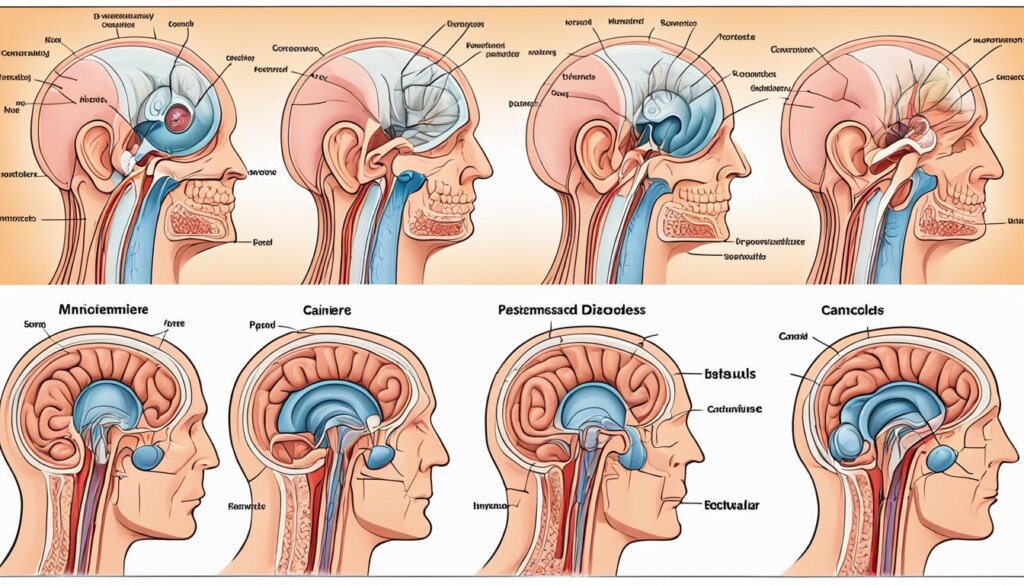
Other things can make you dizzy, like some medicines, stroke, multiple sclerosis, seizures, brain tumors, and bleeding in the brain. If you’re dizzy and have a head injury, fever, seizures, chest pain, irregular heart rate, weakness, loss of movement, or vision or speech changes, see a doctor right away.
Circulation Problems and Dizziness
Dizziness can come from circulation issues like a big drop in blood pressure or poor blood flow. This can happen with conditions like cardiomyopathy, heart attack, or heart arrhythmia. These problems can make not enough blood get to the brain or inner ear. This leads to feeling dizzy or lightheaded.
Poor blood flow can cause feeling lightheaded for many reasons. This includes things like arteriosclerosis, high blood pressure, or diabetes. Some drugs, like nicotine or caffeine, can also make blood flow to the brain worse. Feeling stressed, anxious, or tense can cause artery spasms. This can make circulation worse and lead to dizziness.
Some people might feel dizzy because of other health issues. For example, Benign Positional Vertigo (BPV) can happen after a head injury. Meniere’s disease is another condition that can cause vertigo, nausea, and tinnitus. People who get classic migraines might also feel vertigo during an attack.
Viruses and infections can also make you dizzy. Viruses can cause sudden vertigo without harming your hearing. Bacterial infections can lead to labyrinthitis, which can destroy your hearing and balance. A bad head injury can also cause severe vertigo, nausea, and hearing loss.
Most cases of dizziness and motion sickness can be treated at home. But, some cases need a doctor’s help. Doctors might use tests like blood pressure checks, nerve tests, balance tests, or scans to figure out what’s causing it. Treatment can be anything from medicine to exercises to help with balance, depending on the cause.
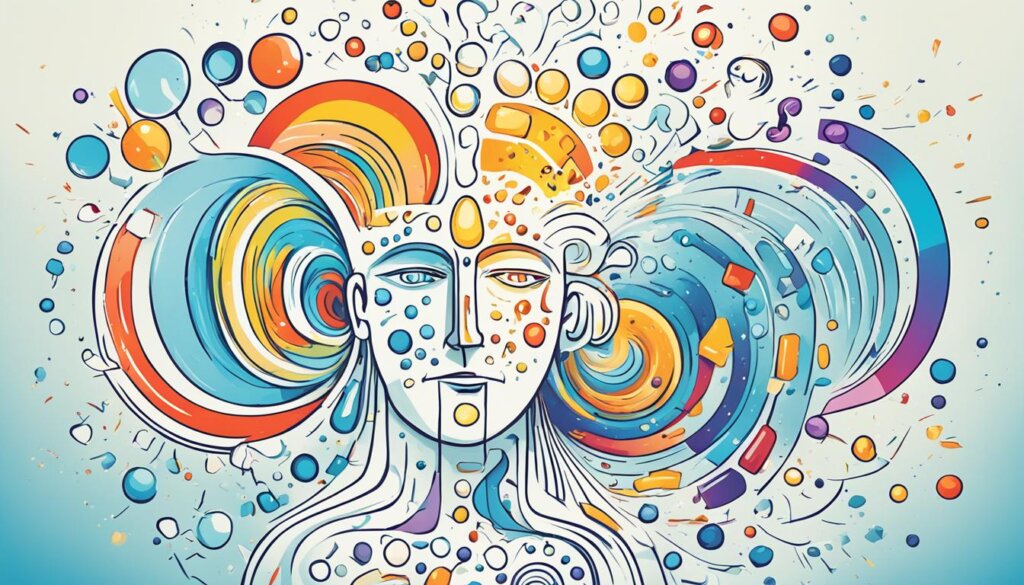
“Almost everyone experiences light-headedness due to poor circulation occasionally; some individuals experience it frequently or chronically.”
Other Causes of Dizziness
Dizziness can come from many things, not just ear problems. Conditions like Parkinson’s disease and some medicines can make you feel dizzy. This includes drugs for seizures, depression, and high blood pressure. Anxiety, anemia, and low blood sugar can also cause dizziness.
Other things like carbon monoxide poisoning, getting too hot, and not drinking enough water can make you dizzy. These issues can make you feel off-balance or lightheaded. Not drinking enough water is a common reason for feeling dizzy. Standing up too fast can also make your blood pressure drop and cause dizziness.
Anxiety or panic and low blood sugar can make you dizzy too. It’s important to deal with these issues to stop feeling bad.
Cause | Symptoms | Treatment |
|---|---|---|
Benign Paroxysmal Positional Vertigo (BPPV) | Recurrent episodes of vertigo triggered by changes in head position | Medication, vestibular rehabilitation therapy |
Vestibular Neuritis/Neuronitis | Sudden onset of severe vertigo, nausea, and vomiting | Antinausea medication, antihistamines, or benzodiazepines |
Postprandial Hypotension | Sudden dizziness after meals, common in older adults | Dietary changes, medications to regulate blood pressure |
Panic Disorder | Dizziness during panic attacks | Therapy, medications |
If you feel dizzy and have trouble walking or seeing, get help right away. These could be signs of a serious problem.
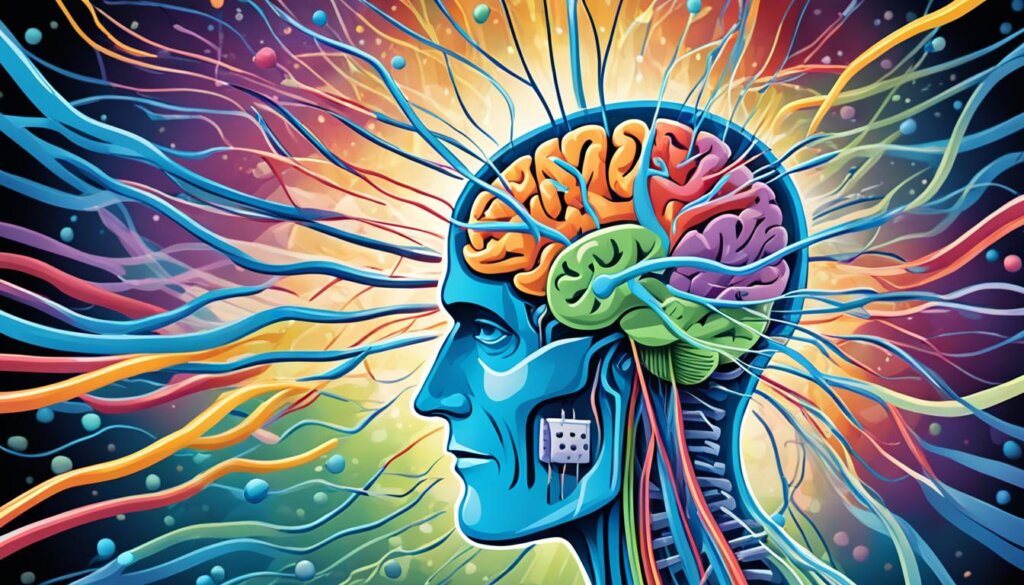
“Dizziness can stem from various causes including medication side effects, heat exhaustion, dehydration, stress, anxiety, iron deficiency anemia, motion sickness, ear infections, migraine, low blood sugar, and cervicogenic dizziness.”
Knowing what can cause dizziness helps you and your doctor find the right treatment. This can help you feel better and stay healthy.
Diagnosis of Dizziness
Tests and Evaluations
Figuring out why you feel dizzy often means a detailed check-up. Your doctor might ask for different tests to find the cause. These tests include eye and head movement checks, balance tests, and tests in a rotating chair. They might also do blood tests to look for infections or other health problems.
Your doctor will look at how you walk and balance, and check your nerves. They will use this info and the test results to find out why you’re dizzy. This helps them make a plan to help you feel better.
Test | Purpose |
|---|---|
MRI or CT scan | Imaging the brain and inner ear to identify structural abnormalities |
Eye movement testing | Evaluating the function of the vestibular system |
Head movement testing (Dix-Hallpike maneuver) | Assessing for benign paroxysmal positional vertigo (BPPV) |
Posturography | Measuring balance and postural control |
Rotary chair testing | Evaluating the function of the vestibular system |
Blood tests | Checking for infections or other underlying health conditions |
Many people visit doctors because they feel dizzy. But, sometimes, doctors can’t find the exact cause. Finding the right cause is key because different causes need different treatments.
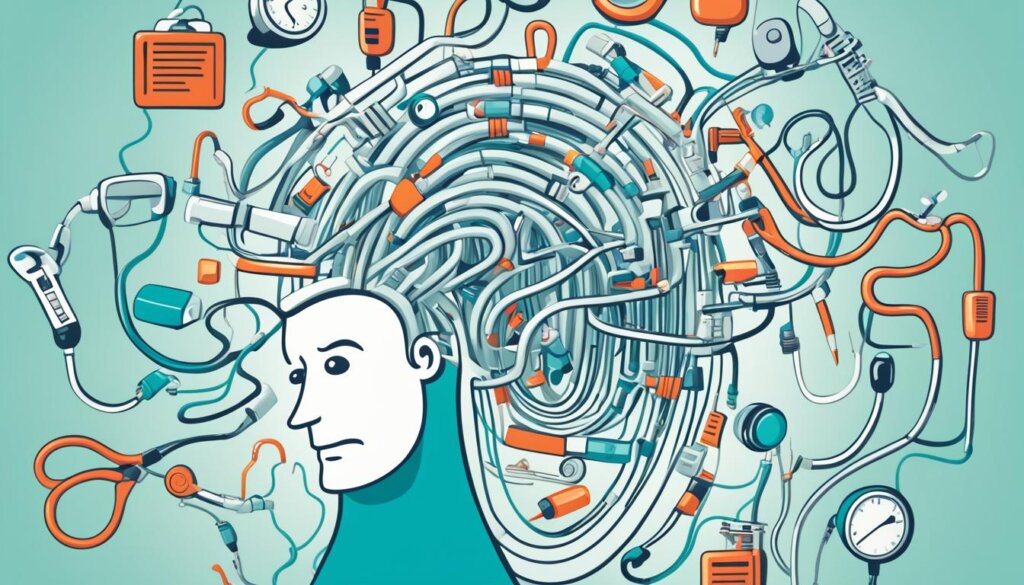
Treatment for Dizziness
Dealing with dizziness often means looking at the root cause. Doctors might give you medicine to help with vertigo, dizziness, and nausea. They might also suggest anti-anxiety drugs. For vertigo caused by BPPV, trying the Epley maneuver can help.
If dizziness comes from the inner ear, balance therapy and exercises can help. Sometimes, injections or surgery like labyrinthectomy are needed if other treatments don’t work.
Preventative migraine medicine is often given for vertigo or dizziness from migraines, and diuretics might be used for Meniere’s disease. Some drugs, like antihistamines and anticholinergics, are made just for treating dizziness.
Living a healthy life can also help prevent and treat dizziness. Staying hydrated, keeping your blood pressure right, and avoiding anemia can make a big difference.
Diagnostic Test | Purpose |
|---|---|
Fukuda-Unterberger test | Checks the inner ear by seeing how you move and lean while marching in place with your eyes shut. |
Romberg’s test | Looks at your balance and nervous system by seeing if you’re steady with your eyes closed. |
Head impulse test | Finds inner ear balance problems by watching how your eyes react to quick head moves. |
Vestibular test battery | Does a full check-up of the vestibular system and brain to see how they work with balance and dizziness. |
To treat dizziness, we focus on the cause, whether it’s an ear issue, circulation problem, or another health issue. You might need different treatments like medicines, special head moves, balance exercises, and sometimes surgery.
Dizziness and Lifestyle Changes
Feeling dizzy often can be scary, but you can make changes to feel better. Fall prevention is key for those who often feel dizzy. Using a cane or walker, clearing your home of tripping hazards, and avoiding risky activities can lower fall risks.
Drinking enough water, eating well, sleeping well, and handling stress can also help with dizziness. Not drinking enough water, eating poorly, not sleeping enough, and feeling stressed can make dizziness worse. So, it’s important to work on these areas.
- Stay hydrated by drinking plenty of water throughout the day.
- Eat a balanced diet rich in nutrients to support overall health and well-being.
- Aim for 7-9 hours of quality sleep each night to allow your body to rest and recharge.
- Practice stress management techniques, such as meditation, yoga, or deep breathing, to reduce the impact of stress on your physical and mental health.
By making these lifestyle changes, you can help manage your dizziness better. If your dizziness doesn’t get better or gets worse, see a doctor for help.
“Maintaining good hydration, eating a healthy diet, getting enough sleep, and managing stress can help reduce the frequency and severity of dizziness episodes.”
Conclusion
Dizziness can really affect how you live your life. Knowing what causes it, like problems with the inner ear or circulation, helps you get the right medical care. This way, you can manage your symptoms and keep your balance and well-being in check.
About 5% of people see a doctor for dizziness, making it a big issue. In fact, 42% of adults have felt dizzy at some time. It gets worse as people get older. Getting the right medical help and using dizziness management tips can help you stay healthy and independent.
Dizziness can make everyday tasks hard and raises the risk of falling, especially for older folks. Working with your doctor, you can find out why you’re feeling dizzy. Then, you can work on improving your balance and well-being. With the right steps, you can handle dizziness better and live a fuller life.
FAQ
What is dizziness?
Dizziness means feeling faint, woozy, weak, or unsteady. It’s different from vertigo, which makes you think you’re spinning. Disequilibrium is when you lose your balance.
What are the common symptoms of dizziness?
Dizziness can feel like you’re moving or spinning (vertigo). You might feel lightheaded or faint. Or you could feel unsteady or like you’re floating.
These feelings can get worse when you move. They might also make you feel nauseous.
What are the common causes of dizziness?
Dizziness can come from problems in the inner ear or balance. It can also be caused by circulation issues, neurological conditions, or certain medicines.
Other causes include anxiety, anemia, and dehydration.
How is the cause of dizziness diagnosed?
Doctors use tests to figure out why you’re dizzy. These tests include MRI or CT scans, eye movement tests, and head movement tests.
They might also do posturography, rotary chair testing, or blood tests. These help check for infections or other health issues.
How is dizziness treated?
Treatment for dizziness depends on what’s causing it. Doctors might prescribe medicines or suggest special exercises.
In some cases, injections or surgery might be needed if other treatments don’t work.
What lifestyle changes can help manage dizziness?
If you often feel dizzy, it’s key to prevent falls. Use a cane or walker and clear your home of things that could trip you.
Drink plenty of water, eat well, sleep enough, and try to reduce stress. These steps can help lessen how often and how bad your dizziness is.

